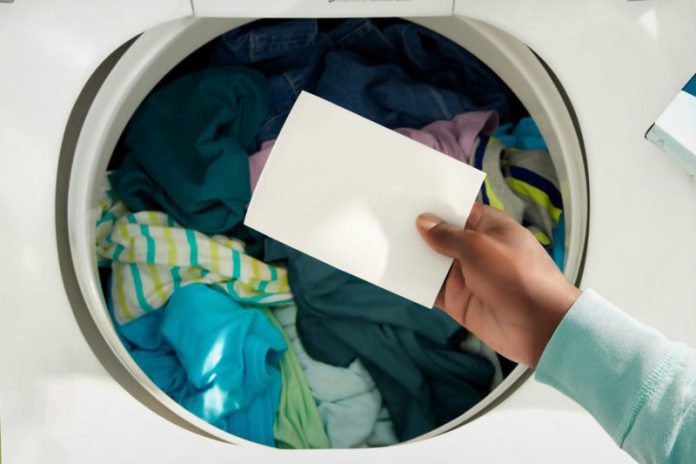The liquid-free concentrated detergent sheets take a few seconds to mix in the drum with cold or hot water. Their pre-portioned amount of detergent gives your laundry loads a suitable washing experience. You drop a laundry detergent strip in the tub without dealing with spills and pouring. Some families carry them on their travel because of their compact packaging, which weighs less than a pound and needs just a little corner in the suitcase. While everyone has a reason to make choices, those who opt for these products heavily bank upon their eco-friendliness. And they have many points to support their pick. Let’s consider them at once.
Plastic-free experience
Suppose you are a four-member family. Going by this, you must handle about five loads of laundry weekly and about 240 to 260 loads annually. It can contain darks, whites, towels, sheets, and other materials. You use up one litre of laundry detergent for every 25 loads. So, you may throw at least ten plastic bottles into the dustbin yearly. Although these are recyclable, credible studies suggest that only about 22% of plastic waste goes to recycling facilities in Canada. 15% of them convert into a new product. Others stay in landfills. Another research shows that a large part of plastic waste in Canada comes from plastic packaging.
When you analyze the situation globally, you will realize that only 9% of virgin plastics weighing around 8300 metric tons went through the process of recycling in 2017, and 79% piled up in landfills. Even today, plastic is a massive climate change concern. For the uninitiated, most plastic materials (almost 99%) use oil and gas for production. Without control, it can consume nearly 10-13% of the carbon budget globally by 2050. Hence, if you want to do your bit, you can incorporate lifestyle choices tweaking your household habits. Encourage items using less or no plastic, such as laundry detergent sheets.
Natural ingredients
The chemical-based detergents rushing through the drains end up in drinking water and other waterways. These don’t biodegrade or become naturally decomposed. Instead, they burden the ecosystem by staying there. Because of harsh chemical compounds, these detergents threaten marine life. If you switch to something made with natural ingredients, you will reduce the pressure on septic systems. The plant-based varieties can be smooth on your skin as well.
A few more logical analyses
One pack of cardboard or paper packaging contains around 30 to 32 strips equivalent to about one to 1.8 litre of a detergent bottle that manages 30-32 normal loads. When you move from plastic bottles to these, you drastically reduce your dependency on one-time-use plastic bottles. If you want to avoid expenses, these products are as affordable as conventional laundry cleaning.
Nevertheless, the primary purpose of buying laundry detergent strips is to clean clothes, making them fresh, stain-free, and hygienic. When you shop for these, focus on products with excellent customer response. At the same time, scrutiny of their ingredients, packaging, and pricing is essential. If everything looks satisfactory, you can buy it for a new laundry washing experience that is also environmentally friendly.















